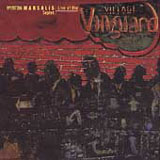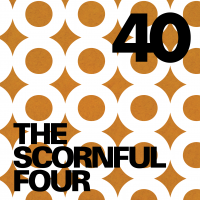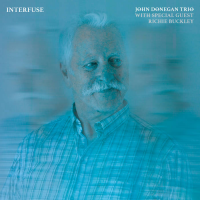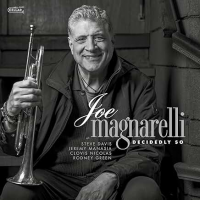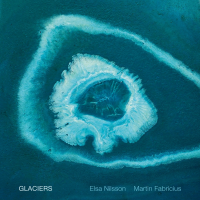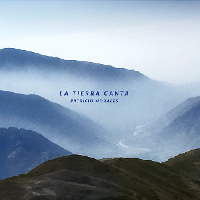Home » Jazz Articles » Album Review » Wynton Marsalis Septet: Live At The Village Vanguard
Wynton Marsalis Septet: Live At The Village Vanguard
Wynton's Generous Gift or Where Are We, Toto?. 1999 was a busy year for Wynton Marsalis. He released his eight disc series Swingin' Into the 21st Century, an Ellington Tribute disc ( Lincoln Center Jazz Orchestra: Live in Swing City Columbia 69898), and finally this gargantuan live offering recorded at New York's Jazz Central, The Village Vanguard. Recorded with three different bands between March 1990 and December 1994, Live At The Village Vanguard chronicles the Marsalis' equivalent of Miles Davis' great Milestones sextet.
Hyperbole. Okay, that may be a bit over the top. Not all readers and writers embrace Marsalis as I have come to (not by a long shot). In fact, it is only recently that I plodded beyond my personal prejudices and finally accepted Marsalis and his music as they really are: didactic, pedantic and a bit too severe. But this is okay. It is didactic, pedantic and too serious music that is well played and enjoyable. Marsalis is a teacher after all.
Generally what I indict Marsalis for is taking himself too seriously, thereby preventing his music from breathing—having fun. I am hardly the only critic that feels this way with Down Beat's Will Smith opens his review of Mr. Jelly Lord with: "It has long been clear that Wynton Marsalis is the catalyst behind the continuing resurgence in jazz, yet one wonders whether the music will survive his seemingly unintentional and/or unconscious efforts at turning it into a museum piece."
One need go no further than Don Byron's Bug Music (Nonesuch 79438, 1996) to find neo-traditional jazz that is fun and alive as opposed to in a display case on a pedestal. Many wish to saddle Marsalis with the responsibility of reversing trends in Jazz because of his leadership position in the music. I fail to see where he is holding up any of the Free/Avant-gard factions (or any other factions for that matter) from doing anything they want to do.
Having said all of this, Marsalis' stint at the Vanguard displays the trumpeter in the middle period of his creativity, having found his own voice. His playing is looser (a blowing session feel) than it has been on his previous recordings, including Live At Blues Alley (Columbia 40675, 1986). And, it sounds like he is having fun and allowing the music to do the same.
Personalities. Marsalis uses three incarnations of his septet in these recordings. His core band consisted of Marsalis on Trumpet, Wycliffe Gordon on Trombone, Herlin Riley on Drums and Wessell Anderson on Alto Saxophone. Beyond that band #1 added Marcus Roberts on Piano, Todd Williams on Tenor Saxophone, and Reginald Veal on Bass. Band #2 added Eric Reed on Piano and Victor Goines on Tenor Saxophone and Clarinet with Reginald Veal again on Bass. Band #3 added Goines and Reed again, but had Ben Wolfe on Bass. Perhaps the starkest contrast between these bands is the presence or absence of Marcus Roberts. Perhaps the greatest of Marsalis' musical progeny (Wycliffe Gordon notwithstanding) , Roberts serves as the atonal center on all pieces which he appears. I have followed Mr. Roberts solo career closely and the only true criticism I can find in his performance philosophy is his infusion of Thelonious Monk harmonies into everything he plays. This is certainly true here. His contributions sound very similar to Monk's on the now famous "Bag's Groove" sessions with Miles Davis on Christmas Eve 1954. While there is nothing wrong with his playing this way, Roberts narrows his tonal and harmonic vision by doing this. As a result, the pieces on which he performs tend to be less coherent than those sporting Eric Reed. Reed throughout provides a well-rounded and informed piano contribution. Reed falls from the same bolt of cloth as Cyrus Chestnut, one who is well- studied with his own voice, influenced by all.
The Repertoire. Marsalis' compositional and performance career is well represented over these seven discs. "Black Codes" shows up from his early, Davis-influenced period. The set is liberally sprinkled with his standards interpretations with his Monk disc foreshadowed with "Monk's Mood" and "Evidence." His longer compositions are in attendance with "Citi Movement" and pieces from In this House, On This Morning.
Not all of this collection works. Marsalis is at his performing and arranging best when he is caressing the older forms. This fact shows up on pieces like "In The Court Of King Oliver" and "And The Band Played On." Only four of the 52 pieces are reprised (not counting the set closer). Marsalis spends most of his time in the middle register and on the occasions where he emerges, he spits out a flurry of notes that recall the crackling report of a Clifford Brown lick. Anderson, Goines and Gordon are the stand-up standouts. Marsalis favors the clarinet in almost all settings and Goines gladly obliges him. Anderson occasionally sounds a bit reedy and thin, but in sounding so, captures the essence of live performance. Eric Reed is all good taste.
This set, like Art Pepper's The Complete Galaxy Recordings is essential for completists, but also provides something for the pedestrian Marsalis listener. There is a lot of well- performed music here that because of sheer volume is bound to have something for all tastes.
Track Listing
CD1: Cherokee; The Egyptian Blues; Embraceable You; Black Codes From The Underground; Harriet Tubman; Monks's Mood; And The Band Played On; The Cat In The Hat Is Back. CD2: Uptown Ruler; Down Home With Homey; Reflections; Jig's Jig; Sometimes It Goes Like; In A Sentimental Mood; Knozz-Moe-King. CD3: Buggy Ride; I'll Remember April; Stardust; In The Court Of King Oliver; Bona And Paul; Four In One; Way Back Blues; Rubber Bottom; Midnight In Paris; Play The Blues And Go On. CD4: Pedro's Getaway; Evidence; Embraceable You; A Long Way; The Arrival; Misterioso; Happy Birthday; The Seductress. CD5: The Majesty Of The Blues; Flee As A Bird To The Mountain; Happy Feets Blues; Thelonious, Stardust, Buddy Bolden; Swing Down Swing Town; Bright Mississippi. CD6: Citi Movement; Winter Wonderland; Brother Veal; Cherokee; Juba And A Brown Squaw. CD7: In The Sweet Embrace Of Life; Local Announcements; Alter Call; Final Statement.
Personnel
Wynton Marsalis
trumpetWynton Marsalis: Trumpet; Wessell Anderson: Alto Saxophone; Todd Williams: Tenor And Soprano Saxophones, Clarinet; Victor Goines: Tenor And Soprano Saxophones; Wycliffe Gordon: Trombone; Reginald Veal, Ben Wolfe: Bass; Eric Reed, Marcus Roberts: Piano; Herlin Riley: Drums.
Album information
Title: Live At The Village Vanguard | Year Released: 2000 | Record Label: Columbia Records
Tags
PREVIOUS / NEXT
Wynton Marsalis Concerts
Support All About Jazz
 All About Jazz has been a pillar of jazz since 1995, championing it as an art form and, more importantly, supporting the musicians who make it. Our enduring commitment has made "AAJ" one of the most culturally important websites of its kind, read by hundreds of thousands of fans, musicians and industry figures every month.
All About Jazz has been a pillar of jazz since 1995, championing it as an art form and, more importantly, supporting the musicians who make it. Our enduring commitment has made "AAJ" one of the most culturally important websites of its kind, read by hundreds of thousands of fans, musicians and industry figures every month.


